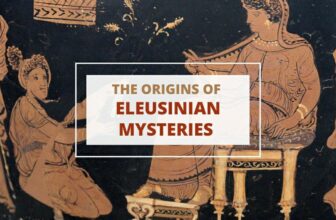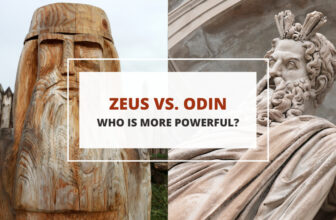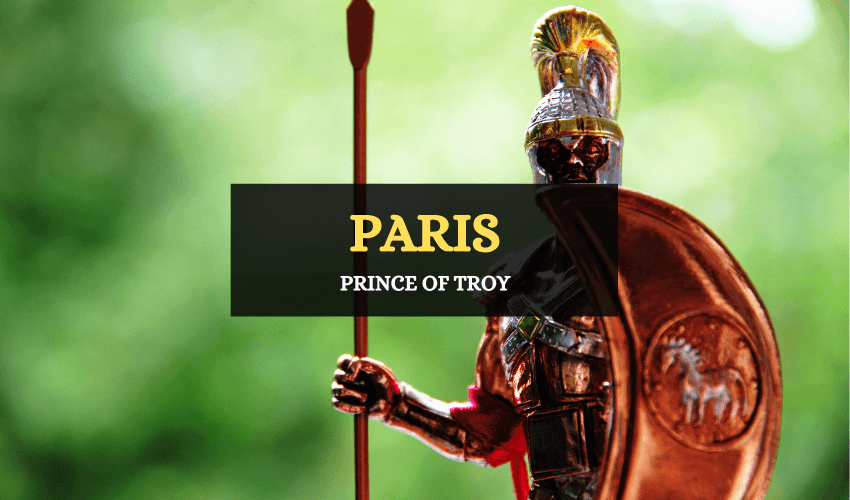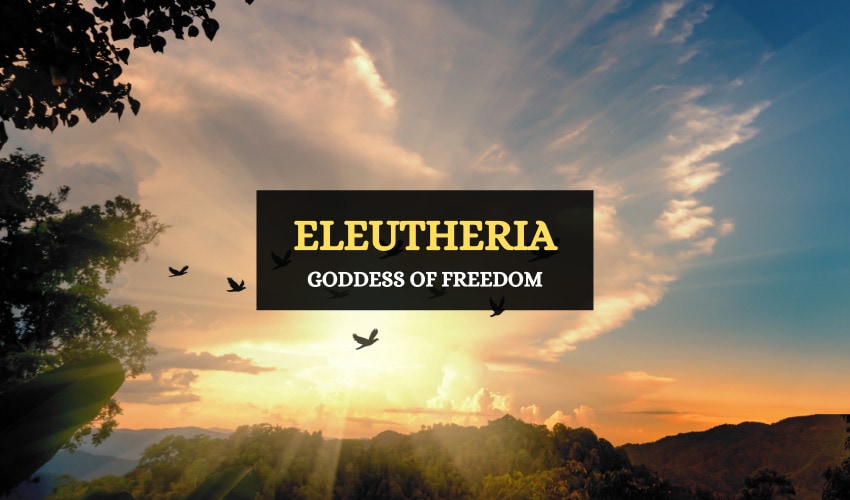
Table of Contents
Many Greek gods are famous to this day for their unique looks, myths, and characteristics. There’s one goddess, however, that we know very little of, even though she sounds like she should have had a bigger part in Greek mythology. That’s Eleutheria – the Greek goddess of freedom.
The concept of freedom is quite common in Greek mythology. After all, it was the ancient Greeks who came up with the concept of democracy. Even in their polytheistic religion, it’s notable that the Greek gods don’t restrict the people’s freedoms as much as the gods of other religions do.
So, why isn’t Eleutheria more popular? And what do we even know about her?
Who is Eleutheria?
Eleutheria is a relatively minor deity that was mostly just worshipped in the city of Myra of Lycia (the modern-day town of Demre in Antalya, Turkey). Coins from Myra with Eleutheria’s face depicted on them have been found in Alexandria in Egypt.
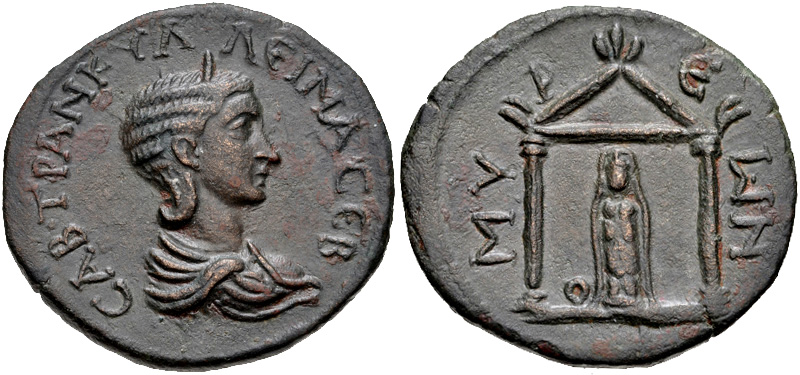
Eleutheria’s name in Greek quite literally means Freedom, which is a trend we can see in other religions with freedom-related deities as well.
Unfortunately, we really don’t know much more about Eleutheria herself. There doesn’t seem to be any preserved myths and legends about her, and she hasn’t interacted much with other deities from the Greek pantheon. We don’t know how the other Greek gods were connected to her. For example, whether she had parents, siblings, partner, or children is unknown.
Eleutheria as Artemis
It’s worth noting that the name Eleutheria has been used as an epithet for the Greek goddess of hunting Artemis. This is fitting as Artemis is also a goddess of the wilderness as a whole. It’s also notable Artemis never marries nor settles down in Greek mythology.
This has led some to believe that Eleutheria may just be another name for Artemis. It would also make sense geographically as Artemis was worshipped in the Greek provinces on today’s western bank of Turkey. In fact, one of the original seven wonders of the ancient world was the Temple of Artemis in Ephesus. That’s not far from the province of Antalya, where the city of Myra used to be.
Still, while a connection between Artemis and Eleutheria is certainly possible and even though it’d explain why we don’t know much of anything about Eleutheria, there really isn’t any concrete evidence to prove this connection. Additionally, the Roman variant of Artemis – the goddess of the hunt Diana – definitely isn’t associated with the Roman variant of Eleutheria – the goddess Libertas. So, chances are that there’s just no connection between the two other than the word eleutheria being used as an epithet for Artemis.
Eleutheria as Aphrodite and Dionysus
The goddess of love and beauty Aphrodite as well as the god of wine Dionysus have also been mentioned alongside the epithet eleutheria. There seems to be even less of a connection between these two deities and the goddess Eleutheria, however, than there was with Artemis. So, it’s most likely that people just associated wine and love with the concept of freedom and that’s all there was to it.
Eleutheria and Libertas
Like most other Greek deities, Eleutheria also has a Roman equivalent – the goddess Libertas. And, unlike Eleutheria, Libertas was actually quite popular and even a big part of the political life in ancient Rome – from the times of the Roman monarchy, through to the Roman Republic, and all the way to the Roman Empire.
Yet, it’s not completely clear that Libertas was directly influenced by Eleutheria, although this was usually the case with most Greco-Roman deities such as Zeus/Jupiter, Artemis/Diana, Hera/Juno, and so on.
Nevertheless, Eleutheria seems to have been so rarely worshiped and poorly known that Libertas just might be an original Roman creation, not in any way connected to Eleutheria. Most mythologies have a freedom deity, so it’s not unusual that the Romans would have come up with this too. If so, this would make the Eleutheria/Artemis connection a bit more likely as it’d be less of an inconsistency that there’s no connection between Libertas and Diana.
Either way, Libertas’ own influence definitely stretches well into the future with many modern-day symbols in Europe and the US being its direct continuations. The American symbol Columbia and the Statue of Liberty herself are two prime examples of that. But, as there isn’t a solid connection between Libertas and Eleutheria, we can’t really credit the Greek goddess as a predecessor of such modern symbols.
Symbolism of Eleutheria
Popular or not, Eleutheria’s symbolism is both clear and powerful. As a goddess of freedom, she’s actually a very strong symbol of the ancient Greek religion. Even Greek pagans today confirm that the concept of freedom is a cornernstone of their religion.
From that point of view, a likely reason for Eleutheria’s lack of popularity might be that all Greek gods and goddesses used to represent freedom. For one, they themselves had to free themselves from the tyrannical rule of the Titans. After that, the gods left humanity to more or less self-govern and didn’t saddle people with any specific commandments or regulations.
The only times the Greek gods would meddle in humanity’s affairs would be when they had some personal interest in doing so – not so much to govern in an authoritarian fashion. So, it could be that Eleutheria’s cult didn’t spread far and wide simply because most Greeks didn’t see the need for a specific deity dedicated to freedom.
In Conclusion
Eleutheria is a fascinating Greek deity both in what she represents and because of how poorly known she is. She’s the type of goddess you’d expect to be worshipped all across the land by the freedom-loving democratically inclined Greeks. Yet, she was likely barely heard of outside of Myra, Lycia. Nevertheless, the curious case of Eleutheria’s lack of popularity doesn’t take away from her important symbolism as a goddess of freedom.




